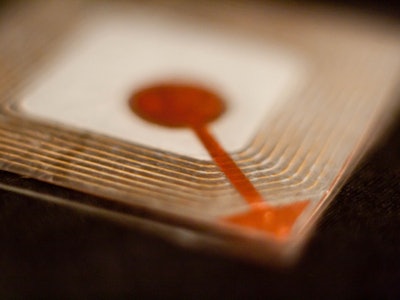Human Traffickers Found to Be Using Pet Trackers on People
The dystopia is rising.

Responding to a woman’s strong insistence that she had a tracking device inside her body, doctors at an unnamed hospital found and surgically removed from her side a small glass capsule loaded with electronics. She, as a victim of human trafficking, had been tagged just as a pet owner might tag a pet.
The stuff of airport thrillers is coming to light in the real world, and it’s giving medical professionals cause to reevaluate just how useful they can be to their patients. Whereas it’s traditionally been law enforcement’s job to bring human traffickers to justice, some new thinking suggests that doctors might stand to play a valuable role.
Victims of human trafficking regularly inhabit the fringes of society until it comes time for their checkup — one report notes that up to 88 percent of human trafficking victims end up in a hospital or emergency room during their imprisonment — and in the case of this unnamed woman tagged with a radio-frequency identification chip, those check-ups might yield unlikely findings.
Importantly, an RFID chip is distinctly different from a GPS tracker. This chip wasn’t providing constant pings to her location, but instead ostensibly contained information like her name, date of birth, and the like. It’s the exact same technology you’d see implemented at any animal shelter or vet’s office; a specialized reader detects such tags through the skin to read and access data like a pet’s name and preexisting medical conditions. Nowadays it’s the de facto way of reuniting a lost pet with its owner. It’s been adapted to malicious ends.
These RFID chips are far from invulnerable once they’re removed from the skin. Wrapping one in a few layers of aluminum foil is all it takes completely block its ability to send and receive information. If you want to kick it up a notch and destroy the thing, you need only put it in the microwave for five seconds or give it a few good whacks with a hammer.
There are a lot of privacy concerns over RFID technology present in passports, transportation payment systems, credit cards, and the like. At the DEF CON security convention in 2005, RFID technology was demonstrated to send data to a reader 69 feet away, so a number of privacy-conscious people make info on disabling RFID chips readily available.
In the meantime, the message to doctors is to take a little more time and be a little more thoughtful with patients who might otherwise never see someone who has their best interests at heart.
“There’s so many sci-fi movies where they stick a device in somebody. Well guess what? It’s real. It happened,” Dr. Dale Carrison of the University Medical Center in Las Vegas, Nevada told Marketplace.
“That was a big wake up call for me personally that, ‘Uh-oh, we’re going to another level now.’ And I need to get the word out to all my colleagues, don’t blow this off.”